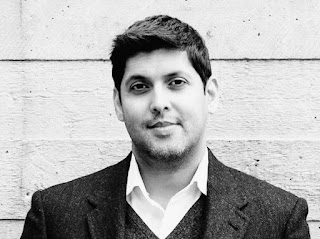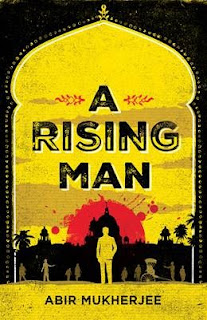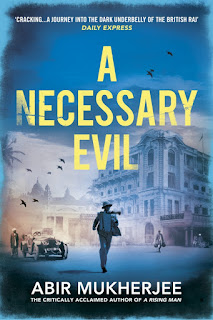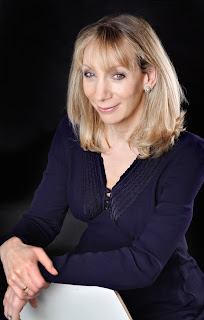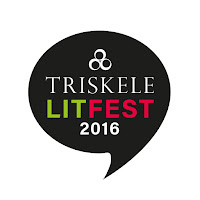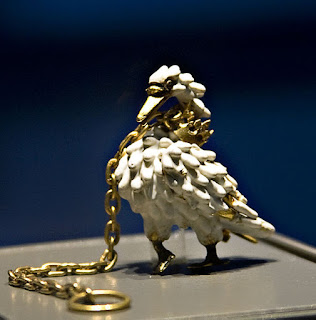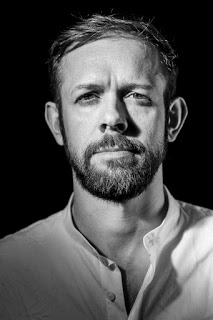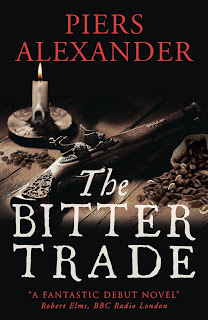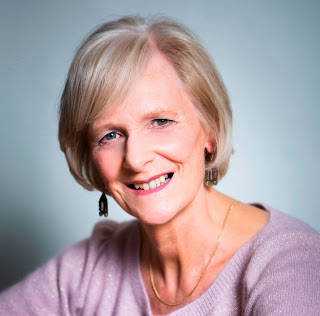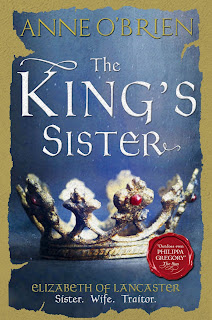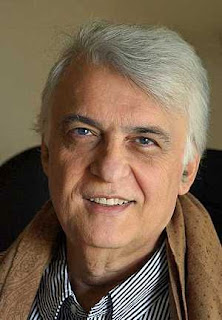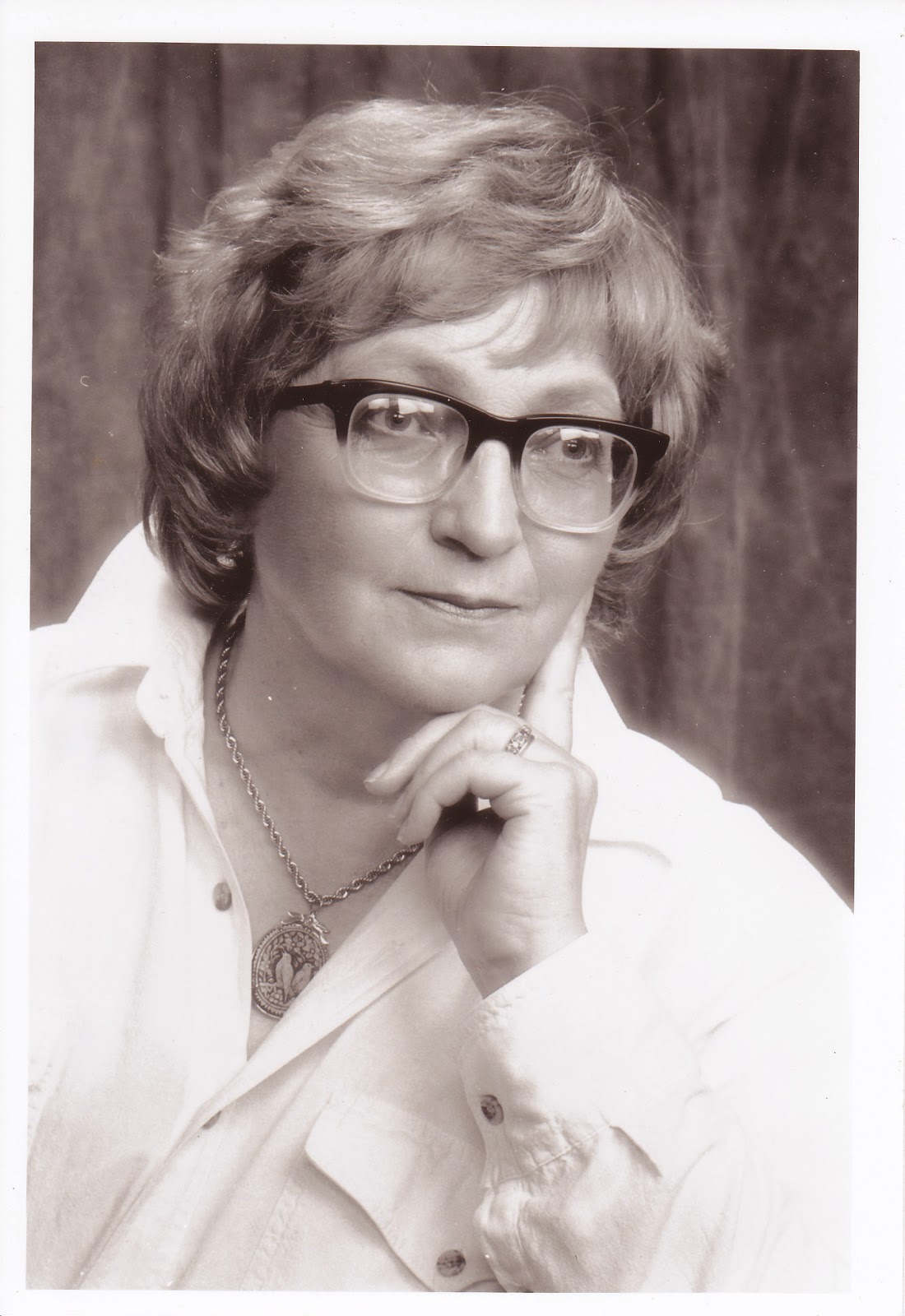Here he talks to Catriona Troth about his inspirations, his research and his plans for the series.
As someone who began as an applied mathematician, I am always fascinated by others who have made a less-than-conventional journey into writing. Can you tell us a bit about how you got started?
Thanks so much for having me on your blog!
I suppose it was a bit of a mid-life crisis. I’m an accountant by profession and had spent the past twenty years in finance. I was thirty-nine, hurtling towards forty and I thought, maybe there might be more to life than accounting.
Then I saw an interview with Lee Child on BBC Breakfast where he talked about how, at the age of forty, he started writing, and I thought, why not? I’d always wanted to write a book but had never had the confidence, and anyway, it seemed safer than other methods of dealing with my stage of life, like buying a motorbike and piercing my ear.
I started writing A Rising Man in September 2013 and a few weeks later I came across details of the Telegraph Harvill Secker Crime Writing Competition, looking for new and unpublished crime writers. The judges were looking for the first five thousand words of a novel, together with a two page synopsis of the whole thing. The only other stipulation was that, in keeping with Harvill Secker’s focus on the best of international crime fiction, there be some ‘international element’ to the submission. By this point I’d already written about ten thousand words, and as the plot was set in Calcutta, it seemed as though what I was writing was tailor made for the competition, so I tidied up the first few chapters, wrote the synopsis and sent off my entry. I really didn’t expect to win.
Why Calcutta and why this particular period of Indian history?
I find the period of British rule in India a particularly fascinating place and time, unique in many respects and one that’s been overlooked, especially in terms of crime fiction. I think that period in history has contributed so much to modern India and Britain, and it was a time that saw the best and the worst of both peoples.
I made a conscious decision to set the series in Calcutta, not just because it was the place my parents came from, but it’s a fascinating city, unique in many respects and in the period that the series is set, it was the premier city in Asia, as glamorous and exotic a location as anywhere in the world. But it was a city undergoing immense change and it was the centre of the freedom movement, a hotbed of agitation against British rule. The history of Calcutta is the history of the British in India. Their presence still cries out from its streets, its buildings and in its outlook.
It would have been harder for me to write authentically while setting it in another Indian city. While I know Bombay and Delhi quite well, I don’t speak the language. Also, I don’t think either city had the same hothouse atmosphere that Calcutta had during the period.
Your books are brim-full of period and location detail. How do you go about researching the background to your books? And conversely, how do you avoid the trap of getting so lost in the research that you forget about the writing?
My research tends to happen in several phases. In the first stage, I’ll do a lot of general reading about the time I’m hoping to write about - in the next book, Smoke and Ashes, which comes out next June, I knew I wanted to set the book in 1921, so I started my general research on that year in India. It turns out that 1921 was the year that Gandhi launched his first all-out non-cooperation campaign and that seemed really interesting to me, so I decided to set the book against that backdrop. I then narrowed my research to the effects of that campaign, both on the Raj and on Indians, so that I could get the background to the book to be as authentic as possible.
At the same time, I’m working on the plot, and deciding how to enmesh it into the period and the setting. I’ll then start writing the first draft, and that is where the next stage of research comes in. At this point it tends to be very specific, micro-issues, that are fundamental to the authenticity of the action. For example there is scene at a fairground in the new book and I needed to make sure I knew what sort of stalls and entertainments there would have been at a fair in India at that time.
You’re right though, sometimes there is the temptation to get bogged down in the research and then put as much of it as I can in the story. But then I remember that no one is likely to be interested in intricacies of things like the Calcutta sewer system.
You have two brilliant main characters - Captain Sam Wyndham, British war veteran, newly arrived in Calcutta, and Surendrenath (Surrender-Not) Banerjee, his Harrow-educated, Bengali detective sergeant. But it is Sam whom you chose as your point of view character and the voice of the narrative. Why him and not Surrender-Not?
There were a couple of reasons for that. Firstly, I needed my narrator to have access to all levels of society - from the Viceroy all the way down to the poorest sections of Calcutta society, and at that time, an Indian policeman, even one educated at Harrow and Cambridge, just wouldn’t have been able to access the British parts of that society.
At the same time, and more fundamentally, I just didn’t feel I could write authentically from an Indian’s perspective, even though my parents and heritage are Indian. I’d like to write something from Surrender-not's perspective - maybe one day when I’m more confident in my writing.
You say in your Author’s Note that A Necessary Evil was inspired by the Begums of Bhopal. Can you tell us a bit more about them, and how they triggered the kernel of your second novel?
Between 1819 and 1926 four Muslim women rulers reigned over Bhopal, the second largest Muslim state of India, despite staunch opposition from powerful neighbors and male claimants. The British East India Company also opposed female rule in Bhopal until the Begums quoted Queen Victoria as their model and inspiration.
As I researched the period, I found that these women, and others like them in other kingdoms, seem to have been very influential and somewhat forgotten by history. Often, while the maharajahs became debauched, it was the their maharanis and princesses who became the true keepers of the traditions of the kingdoms. I found this fascinating and wanted to make it a part of my story.
The line that made me laugh out loud came when Sam tells Surrender-not that Indian women are just as capable of murdering their spouses as English women. “Not Bengali women, sir,” Surrender-not replies, “They just browbeat their husbands into submission. I doubt the need for murder would arise.” Reminded me of a couple of friends of ours! I have a feeling there might be a story behind this, if you’re willing to share.
Of course!
Rather than one story, though, it’s more an amalgam of many examples I’ve seen over the years, both from my parents' generation and my own. It might be because Bengal has historically been a pretty liberal part of India, where women have played a more equal role in society than their peers in other parts of the country, be it in terms of education or workplace opportunities. Whatever the reason, Bengali women can be fearsome!
In terms of stories, probably the best illustration is the tale of the weekly poker game which my father and some of his friends used to hold most Saturdays. One of his Bengali friends who lived close by, was given strict instructions by his wife that he was not to attend as he tended to lose money most of the time. So he gave her his word that he wouldn’t. Instead he told her to go up to bed for a nap while he tidied the house. Being a clever chap, however, he simply switched on the hoover, and leaving it running, he left the house and came over to ours for the card game. Half an hour later, there was a terrible banging on the front door and an irate auntie looking for her husband, who by this time was fleeing out the back way.
As I researched the period, I found that these women, and others like them in other kingdoms, seem to have been very influential and somewhat forgotten by history. Often, while the maharajahs became debauched, it was the their maharanis and princesses who became the true keepers of the traditions of the kingdoms. I found this fascinating and wanted to make it a part of my story.
The line that made me laugh out loud came when Sam tells Surrender-not that Indian women are just as capable of murdering their spouses as English women. “Not Bengali women, sir,” Surrender-not replies, “They just browbeat their husbands into submission. I doubt the need for murder would arise.” Reminded me of a couple of friends of ours! I have a feeling there might be a story behind this, if you’re willing to share.
Of course!
Rather than one story, though, it’s more an amalgam of many examples I’ve seen over the years, both from my parents' generation and my own. It might be because Bengal has historically been a pretty liberal part of India, where women have played a more equal role in society than their peers in other parts of the country, be it in terms of education or workplace opportunities. Whatever the reason, Bengali women can be fearsome!
In terms of stories, probably the best illustration is the tale of the weekly poker game which my father and some of his friends used to hold most Saturdays. One of his Bengali friends who lived close by, was given strict instructions by his wife that he was not to attend as he tended to lose money most of the time. So he gave her his word that he wouldn’t. Instead he told her to go up to bed for a nap while he tidied the house. Being a clever chap, however, he simply switched on the hoover, and leaving it running, he left the house and came over to ours for the card game. Half an hour later, there was a terrible banging on the front door and an irate auntie looking for her husband, who by this time was fleeing out the back way.
I believe you have some pretty long-reaching plans for this series. Can you tell us a bit about that?
Ideally I’d like to look at the whole period of British India between the end of the First World War and Indian Independence in 1947, which is almost thirty years. I want to see how the relationships between the British and the Indians evolve during this period, and I think that will be mirrored in the changing relationship between Sam and Surrender-not.
And I think Ian Rankin has told you that you really ought to write something contemporary as well. Any temptation to follow his advice? And if so, what might you write about?
I would love to write something set in the present day, looking at issues around radicalisation of Muslim youth or some of the other problems facing British society. The problem really is one of time. I’m still working full time and my publishers, Penguin Random House have just given me a new contract for another two Sam Wyndham novels. I’d like to think that once I’ve written them, I’ll be able to take a break to write something more contemporary.
Thank you, Abir. Looking forward to reading Smoke and Ashes as soon as it comes out!
You can read Catriona Troth's reviews of A Rising Man and A Necessary Evil on BookMuseUK.
Abir Mukherjee grew up in the West of Scotland. The son of Indian immigrants, A Rising Man, his debut novel, was inspired by a desire to learn more about a crucial period in Anglo-Indian history that seems to have been almost forgotten. The first in a series starring Captain Sam Wyndham and ‘Surrender-not’ Banerjee. It won the Harvill Secker/Daily Telegraph crime writing competition, was a Waterstones Thriller of the Month and is currently shortlisted for both the CWA Gold and CWA Historical Daggers, and also for the HWA Debut Crown 2017. His second novel, ‘A Necessary Evil’ is out now.
Abir Mukherjee grew up in the West of Scotland. The son of Indian immigrants, A Rising Man, his debut novel, was inspired by a desire to learn more about a crucial period in Anglo-Indian history that seems to have been almost forgotten. The first in a series starring Captain Sam Wyndham and ‘Surrender-not’ Banerjee. It won the Harvill Secker/Daily Telegraph crime writing competition, was a Waterstones Thriller of the Month and is currently shortlisted for both the CWA Gold and CWA Historical Daggers, and also for the HWA Debut Crown 2017. His second novel, ‘A Necessary Evil’ is out now.

